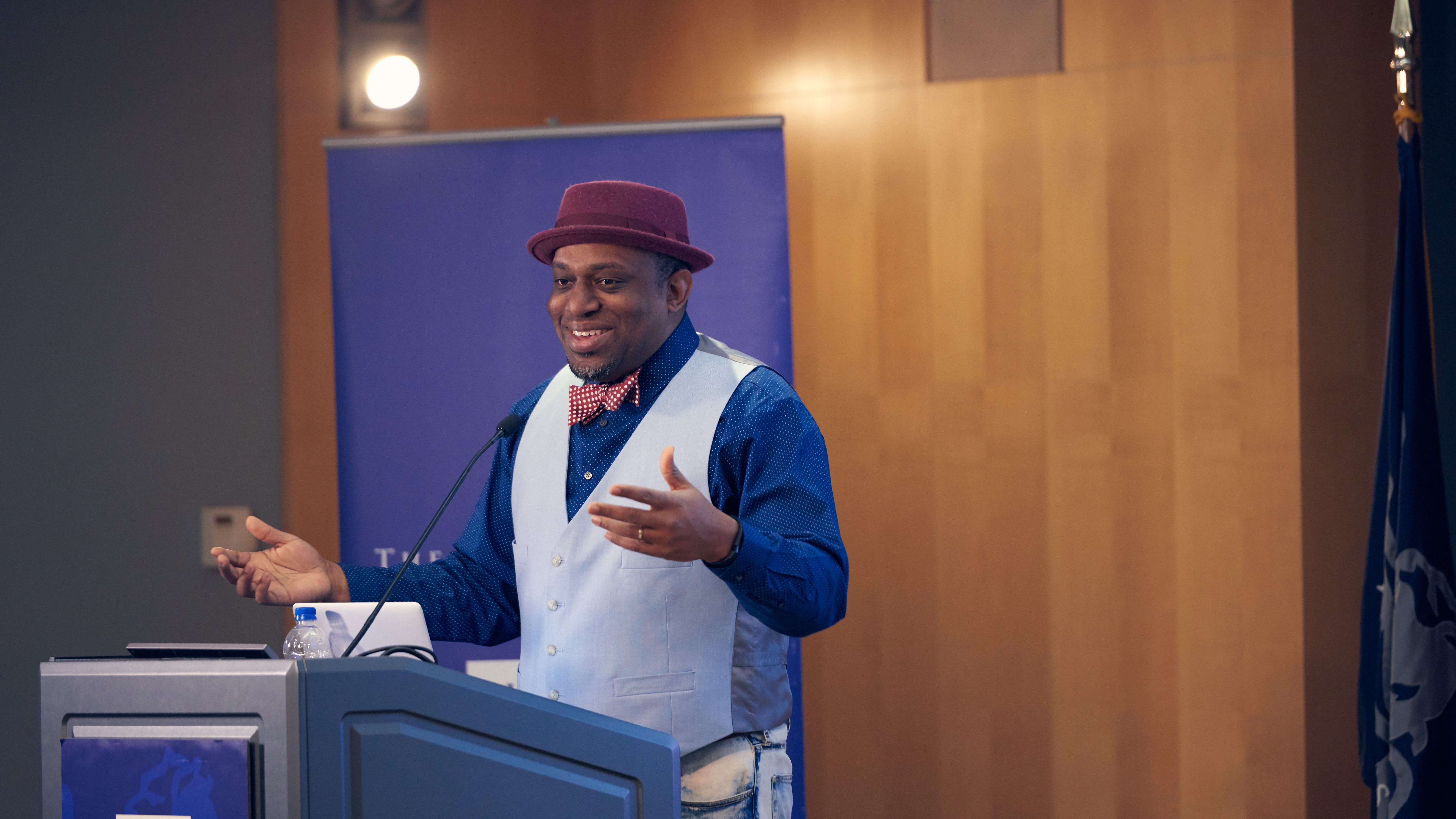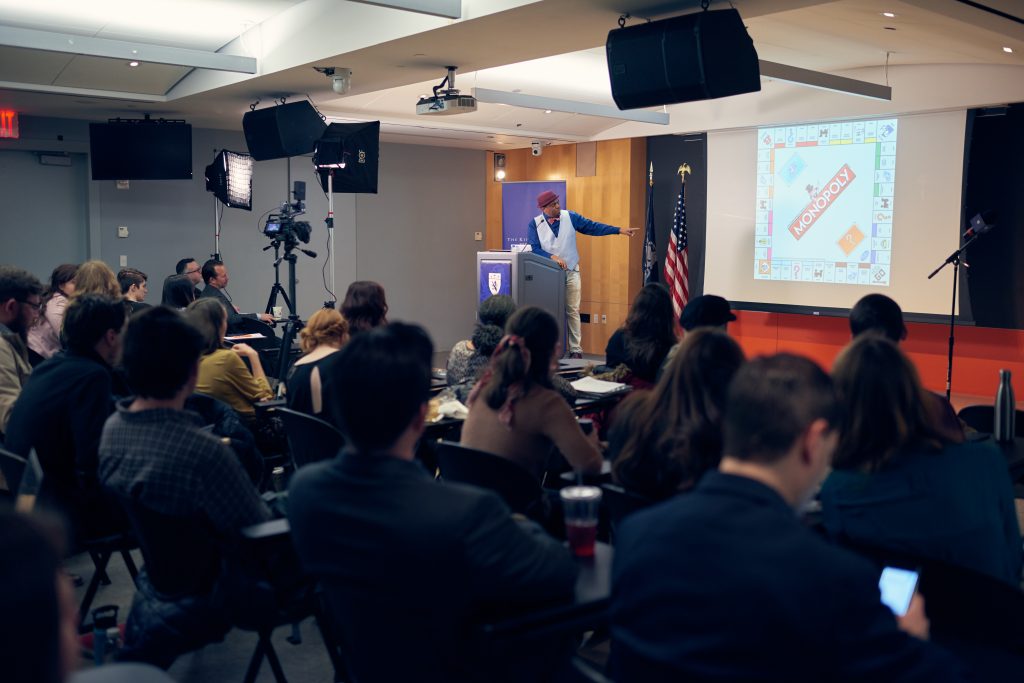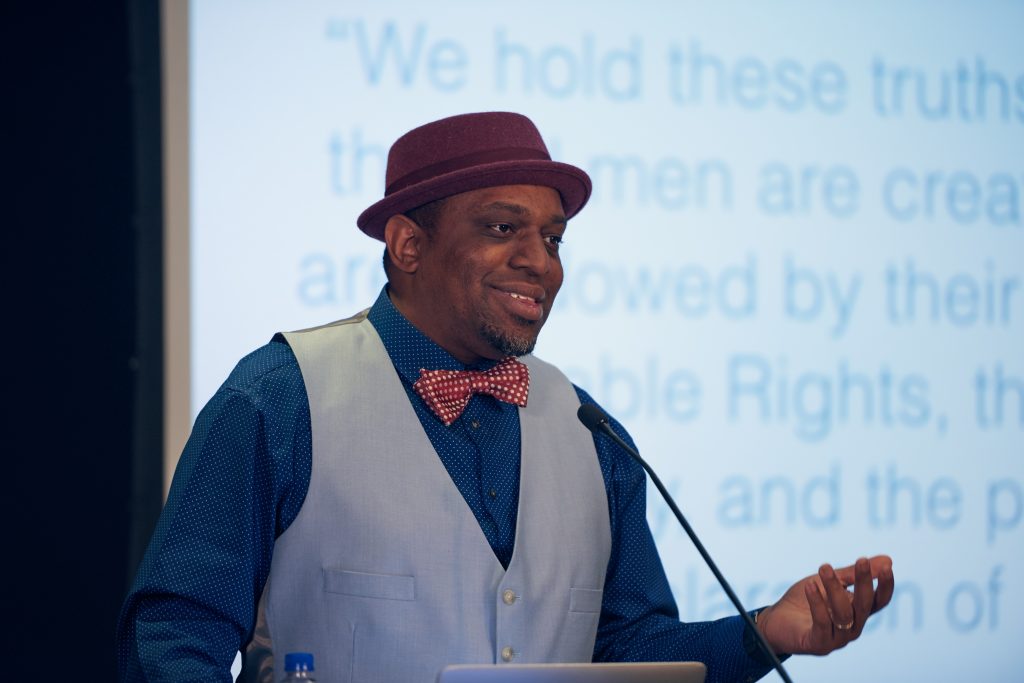Black History Month Speaker David M. Bailey Redefines “We” in “We the People”
Bailey addressed themes of colorblindness, culture-blindness, and power-blindness, which have been ingrained in America since its founding.

On February 4, The King’s College welcomed David M. Bailey as this year’s Black History Month speaker. Bailey addressed themes of colorblindness, culture-blindness, and power-blindness, which have been ingrained in America since its founding and can only be rectified by creating a new American culture in which the Church actively pursues reconciliation.
WATCH: David M. Bailey’s Black History Month address
Bailey explained that America’s vision of freedom and equality was muddled in the original wording of the Declaration of Independence, which exclusively applied to free white males rather than creating an inclusive “we” across cultures and colors. This was harmful, he continued, not only to African Americans but to the flourishing of America because when we fail to see color, we fail to grasp America’s full story. Bailey praised Frederick Douglass, W.E.B. Du Bois, Langston Hughes, and other Black culture-makers for taking significant strides toward an inclusive American story, but if indeed today’s Christians want America’s story to be different, then we must address the task of mending a nation torn by outrage, hatred, and inhumanity. “It’s naive to think that we could make a significant change and undo centuries of inequity in a matter of decades,” Bailey acknowledged, but we can begin by asking, “What is our story in full color?”
Bailey’s message was ultimately promising: we who belong to the Church have the opportunity to use it as an instrument of reconciliation across cultures, classes, and other social divisions. He urged King’s students in attendance to tell their own stories and produce their own culture because they have a unique position in the cultural capital of the United States. The same goes for business leaders, who often have considerable influence on public thought and policy.
That is exactly what Bailey does through his church, which welcomes diverse congregants in times of mourning as well as celebration. After one particularly controversial case of racial violence, Bailey’s church became a haven of healing. “By weeping and crying together, we created a new ‘we,’” he said, “because we created a new culture and a shared experience.” Bailey also founded his Arrabon and Urban Doxology ministries to train and equip Christians to bridge cultural gaps, especially through songwriting. Arrabon means “foretaste,” which Bailey chose because he believes that the Church can and ought to be a foretaste of heavenly reconciliation for a divided world.

Admissions counselor Tasha Azor reflected on Bailey’s charge to King’s. She said the lecture should be seen as part of the College’s ongoing pursuit of racial reconciliation, rather than as “a blip in the school year.” Achieving the foretaste that Bailey promised is a “joint burden, a joint lesson, and a joint effort” for Christians of all backgrounds, cultures, and colors. Only then can we redefine “we” and tell America’s story in full color.
Sarah Fox, a junior involved with The Table, commented, “David Bailey’s lecture provided a great awakening to The King’s College. I admired his message about the power of culture and the hope of reconciliation. I aspire to carry that hope of redemption with me and I pray that King’s does the same.”





